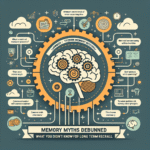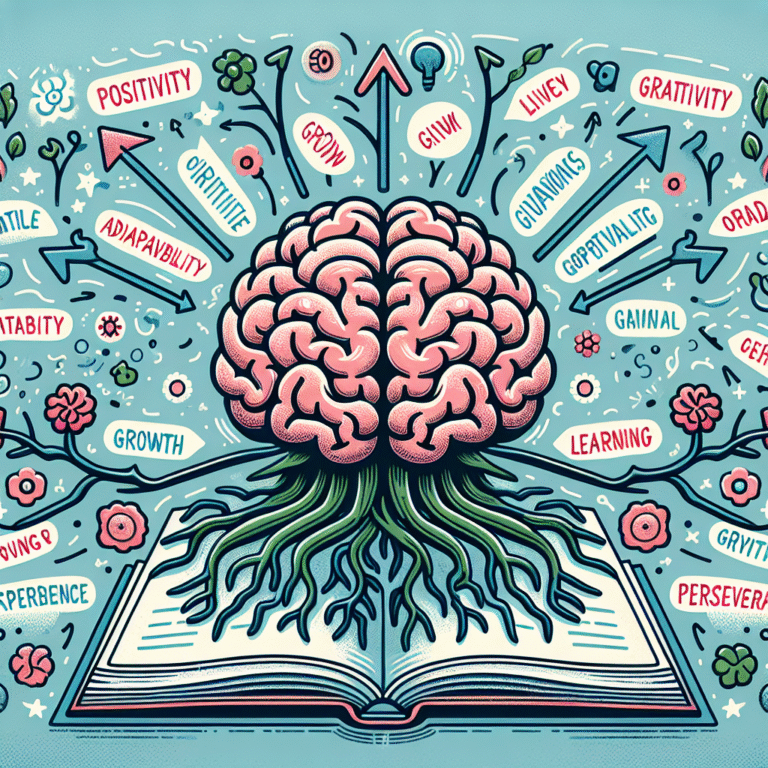
Introduction
In our fast-paced modern world, the ability to retain information and think critically has never been more crucial. Working memory, the brain’s workspace that allows us to hold and manipulate information over short periods, plays a vital role in our daily lives—from remembering a phone number to solving complex problems at work. If you’ve ever found yourself forgetting where you placed your keys or struggling to recall details in an important meeting, you’re not alone. But here’s the good news: you can boost your brain and enhance your working memory with effective strategies and techniques.
This article delves into a comprehensive array of tips and techniques that will help you improve your working memory. By systematically incorporating these methods into your daily routine, you will empower both your cognitive abilities and overall mental efficiency. Let’s embark on this journey to enhance your memory and elevate your brainpower!
The Science of Working Memory
What is Working Memory?
Working memory is a fundamental cognitive system that allows individuals to temporarily store and process information. It is often divided into three components:
- The Phonological Loop: Responsible for verbal and auditory information.
- The Visuospatial Sketchpad: Deals with visual and spatial information.
- The Central Executive: Coordinates the two systems and manages attention.
Studies indicate that working memory is not merely a storage system but a crucial player in higher cognitive processes such as reasoning, problem-solving, and planning.
Why Improve Working Memory?
Improving working memory can lead to a range of personal and professional benefits. For instance, enhanced working memory is linked to better academic performance, increased productivity at work, and improved decision-making skills. Individuals with robust working memory are often more adept at learning, adapting, and executing complex tasks.
Tips and Techniques to Enhance Your Working Memory
1. Mindfulness Meditation
Mindfulness meditation has gained popularity for its profound impact on cognitive function. Research published in the journal Consciousness and Cognition revealed that mindfulness practices can enhance working memory capacity and cognitive flexibility.
How to Practice:
- Start Small: Aim for 5-10 minutes of meditation.
- Focus on Breath: Concentrate on your breath to ground yourself.
- Gradually Increase Time: Slowly increase your meditation duration as you grow more comfortable.
2. Chunking Information
Chunking is the process of grouping information into smaller, manageable units. This technique can significantly enhance your ability to recall complex information.
Example:
Instead of trying to remember the number 149217761941, break it down into chunks: 1492-1776-1941.
3. Use Mnemonics
Mnemonics are powerful memory aids that help encode information in a more memorable way. Techniques like rhymes, acronyms, and visualization can boost retention.
Case Study:
In a study at the University of California, researchers found that students who used mnemonics to study vocabulary retained information 80% better than those who did not use memory aids.
4. Engage in Physical Exercise
Physical activity has a profound impact on brain health. Studies show that regular exercise increases the production of neurotrophic factors that support neuron survival and brain plasticity.
Recommended Activities:
- Aerobic exercises like jogging or swimming.
- Strength training can also have cognitive benefits.
5. Diet and Nutrition
Eating a balanced diet rich in antioxidants, healthy fats, vitamins, and minerals is critical for brain health. Foods such as blueberries, fatty fish, and leafy greens can enhance cognitive function.
Table: Brain-Boosting Foods
| Food | Benefit |
|---|---|
| Blueberries | Rich in antioxidants |
| Fatty Fish | High in Omega-3 fatty acids |
| Leafy Greens | Contains vitamins K and E |
| Nuts | Source of healthy fats and vitamin E |
| Dark Chocolate | Boosts blood flow to the brain |
6. Sleep and Memory Consolidation
Sleep is essential for memory consolidation. During sleep, especially during REM cycles, your brain processes and stores information.
Tips for Better Sleep:
- Maintain a regular sleep schedule.
- Create a relaxing bedtime routine.
- Limit screen time before bed.
7. Limit Multitasking
Although multitasking might seem appealing, it can negatively affect working memory performance. When you switch between tasks, your brain takes time to reorient, leading to cognitive overload.
8. Practice Memory Exercises
Engaging in puzzles, memory games, and brain training apps can serve as excellent workouts for your working memory.
Suggested Memory Games:
- Sudoku
- Crosswords
- Digital brain training platforms like Lumosity
9. Stay Socially Active
Social interaction stimulates mental engagement. Engaging in conversations, playing games, or participating in group activities can sharpen your working memory.
Case Study:
A study published in Psychological Science found that individuals with rich social lives have better cognitive performance as they engage their working memory through continual interaction.
10. Create a Brain-Boosting Environment
Your environment plays a significant role in your cognitive abilities. A well-organized, distraction-free space can enhance focus and memory.
Tips:
- Declutter your workspace.
- Use natural light when possible.
- Surround yourself with plants or calming elements.
Conclusion
Enhancing your working memory is not merely about memorization; it’s about empowering your cognitive abilities to work smarter, not harder. The techniques and tips discussed in this article—ranging from mindfulness meditation to creating an optimal workspace—aim to provide you with practical tools to boost your brain.
By integrating these strategies into your daily life, you not only improve your memory but also foster a mindset geared towards lifelong learning and adaptability. So, why wait? Start implementing these tips today and take a bold step toward unlocking your brain’s full potential.
Frequently Asked Questions (FAQs)
1. Can working memory be improved at any age?
Yes, working memory can be improved through consistent practice and the application of dedicated techniques, regardless of age.
2. How long does it take to see improvement in working memory?
While some improvements can be noticeable within a few weeks, significant changes might take several months of consistent practice.
3. Are brain training apps effective?
Certain brain training apps can indeed enhance cognitive functions, but their effectiveness may vary based on individual use.
4. Is it necessary to consult a professional to enhance memory?
While self-guided techniques are beneficial, consulting a neuropsychologist or cognitive therapist can provide personalized strategies for serious memory concerns.
5. How much sleep is necessary for optimal memory function?
Most adults require 7-9 hours of sleep per night for optimal cognitive functioning, including memory consolidation.
By adopting these tips and techniques to enhance your working memory, you can invest in your cognitive health and overall quality of life. Start today, and experience the transformative power of improved memory!

















